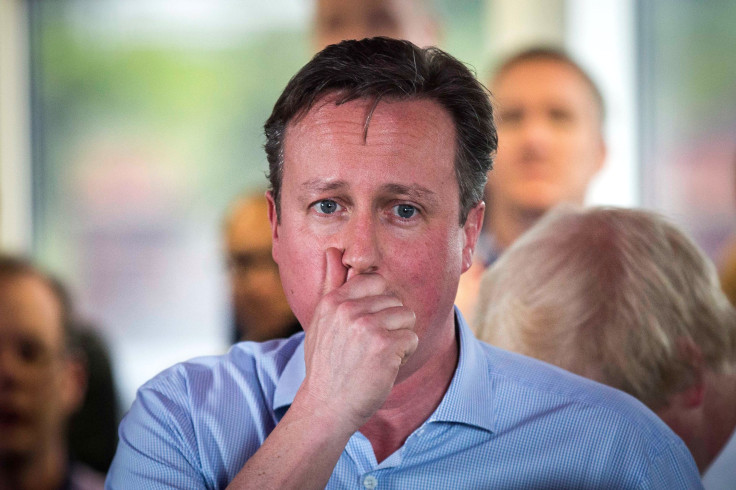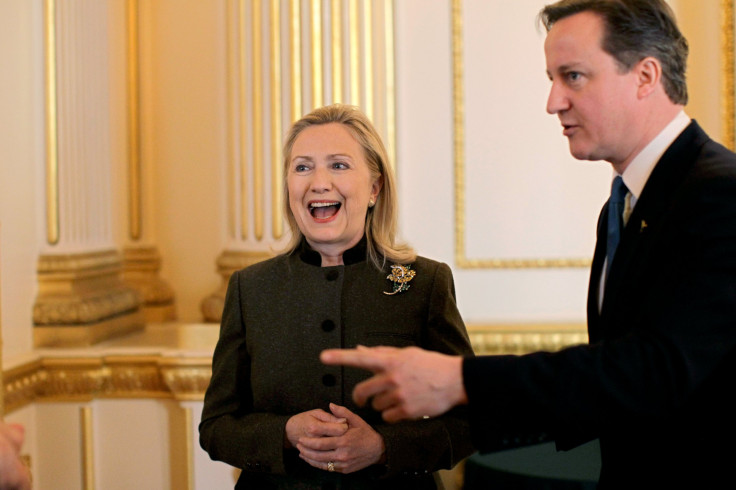Who Supported EU Remain Vote? The Big Losers In The Referendum On Britain’s Future

The British public voted Thursday to leave the European Union, providing a stunning end to a debate that raised profound questions around the meaning of sovereignty, statehood and what it means to be British.
On each side of the discussion around the British exit, or Brexit, stood a wide array of politicians, celebrities and other public figures, in the U.K. and abroad. Here’s some of the popular figures who found themselves on the losing end.
David Cameron, prime minister of the United Kingdom
The leader of Britain’s government was also the nation’s most steadfast proponent of staying in the EU. Yet it was Cameron who decided to hold the referendum in the first place, an attempt to assuage the pro-Brexit wing of his Conservative party. The vote soon turned into a barometer of the confidence the party held in Cameron as leader.
Throughout the campaign, Cameron cited the consensus among economists: that a Brexit could do real harm to British trade and industry. But despite warning that leaving the EU would be the “gamble of the century,” an “irreversible” risk and even a threat to the 70-year peace of Europe, Cameron failed to tamp down widespread support for the leave camp.
Sadiq Khan, mayor of London
Elected in May, Sadiq Khan became London’s first Muslim mayor as well as the city’s most visible advocate of remaining in the EU. The son of a Pakistani-born bus driver, Khan viewed the Brexit debate through the lens of immigration — a central concern for many proponents of leaving the EU and its open borders.
“I am the son of immigrants who grew up on a council estate in south London,” Khan wrote in a Newsweek op-ed arguing for Britons to vote to remain. “I saw firsthand how Britain embraced my parents and my family and provided us with countless opportunities. And my story is far from unique.”
From Manchester to Yorkshire to every corner of London - I'll be putting forward the case to remain in the EU #EURef pic.twitter.com/QSVirlyLBS
— Sadiq Khan (@SadiqKhan) June 15, 2016
Eddie Izzard, comedian
“I may look confusing, but I have a clear message,” comedian Eddie Izzard told audiences in recent months during a tour that made him one of the most unlikely faces of the “remain” campaign. “We gradually move forwards, not backwards. That above all is my argument for remaining in Europe: Is this not the story of humanity?”
Izzard was one of several celebrities — including soccer star David Beckham, actor Benedict Cumberbatch, "Harry Potter" author J.K. Rowling and even Cuban-American baseball great Jose Canseco — who used their platforms to back the “Stronger In” campaign to remain. “I’m trying to give a vision that will make the entire world work,” Izzard told the Guardian.
Great way to finish the final #standupforeurope event. Let's stand together and vote #remain on 23rd June pic.twitter.com/GwCgyV9UpQ
— Eddie Izzard (@eddieizzard) June 21, 2016
Hillary Clinton, U.S. presidential candidate
Right now she’s just a civilian, but Hillary Clinton aims to become the next leader of the free world. As such, she said she’d prefer the U.K. to remain an EU nation. “Hillary Clinton believes that trans-Atlantic cooperation is essential, and that cooperation is strongest when Europe is united,” her office said in an April statement.
That announcement followed President Barack Obama’s contested visit to the U.K., in which he exhorted Britain to remain in the EU. “Be proud that the EU has helped spread British values and practices — democracy, the rule of law, open markets — across the continent and to its periphery,” Obama said.

George Soros, billionaire investor
Hedge fund legend George Soros earned fame — and notoriety — for his 1992 bet that the British pound was due for a devaluation. It wasn’t just a wager; Soros wielded billions of pounds in leverage to force the Bank of England to submit, gaining at least $1 billion in the process.
Soros, who has since become a major philanthropist and political activist, recently stepped again into the British arena, warning that a departure from the EU would spark another collapse in the pound. “I would expect this devaluation to be bigger and also more disruptive than the 15 percent devaluation that occurred in September 1992 when I was fortunate enough to make a substantial profit for my hedge fund investors,” Soros wrote Monday.
Though he supported the campaign to remain in the EU, Soros was proved right. In overnight trading, sterling suffered its largest drop in more than 30 years.
© Copyright IBTimes 2024. All rights reserved.





















